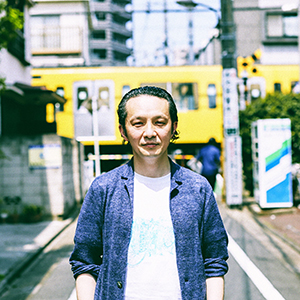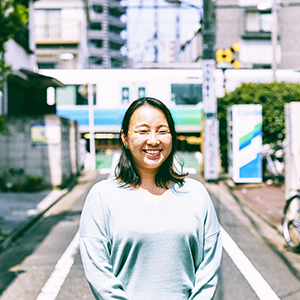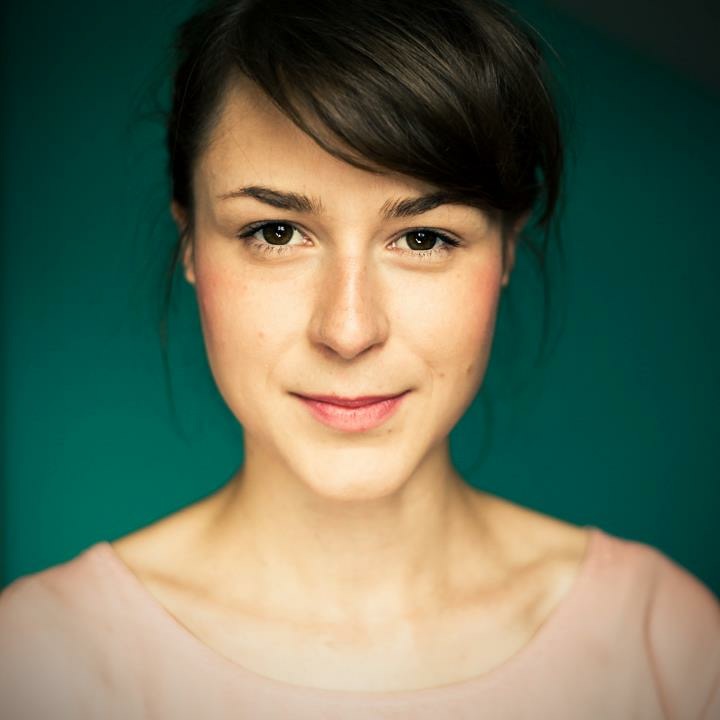Press Release
A performing arts festival born from the city
Festival/Tokyo 2019 opens October 5th
37 days of performing arts in the city exploring the theme of “Body Speed”
Festival/Tokyo (F/T) returns this autumn for its 12th edition, bringing together an exciting lineup of Japanese and overseas artists, unique international co-productions, and site-specific outdoor performances. Held annually since 2009 as Tokyo and Japan’s leading performing arts event, the festival has continued to present audiences with new kinds of cultural and social values, and provide diverse platforms for interaction and exchange.
The festival will open with a special parade that unfolds across several shopping streets in the Toshima area of Tokyo. The diverse programming will also include a new work directed by the Polish theatre artist Magda Szpecht as well as participatory projects and collaborations with young artists. Ongoing since 2014, the Asia Series will once again introduce contemporary Asian performing arts and visual art across the region in a program called “Transfield from Asia.” In addition, the second part of the two-year documentary project “Changes” will also screen as part of the festival.
Information on the artist lineup will be announced in mid-June and full program details in mid-July.
Press release PDF version
Press images
Festival Outline
Festival/Tokyo 2019 (F/T19)
October 5th – November 10th, 2019 (TBC) (37 days)
Venues: Tokyo Metropolitan Theatre, Owlspot Theater, Theater Green, and more
All information is subject to change.
Festival/Tokyo (F/T) presents a wide range of contemporary stage performances while exploring new possibilities for art. Launched in 2009 and held every autumn with a lineup of cutting-edge artists from Japan and around the world, the festival features a program of theatre, dance, music, visual art, film, and more mainly in the Ikebukuro area of Tokyo. To date, it has presented 305 works and 2,221 performances/events for audiences of over 690,000. As a performing arts festival born from the city, it continues its efforts to renew the potential and model of an urban performing arts event.
Organizers: Festival/Tokyo Executive Committee,
Toshima City, Toshima Mirai Cultural Foundation, NPO Arts Network Japan (NPO-ANJ),
Tokyo Festival Executive Committee (Toshima City, Toshima Mirai Cultural Foundation, Festival/Tokyo Executive Committee, Arts Council Tokyo & Tokyo Metropolitan Theatre [Tokyo Metropolitan Foundation for History and Culture])
“Transfield from Asia” is co-organized by the Japan Foundation Asia Center.
Supported by the Agency for Cultural Affairs, Government of Japan in the fiscal 2019.
Festival/Tokyo 2019 is organized as part of Tokyo Festival 2019.
Festival/Tokyo 2019 is held in partnership with Culture City of East Asia 2019 Toshima.
Inquiries
Festival/Tokyo Executive Committee Secretariat Overseas PR: William Andrews
Tel: 03-5961-5202
Fax: 03-5961-5207
Email: contact@festival-tokyo.jp, press@festival-tokyo.jp
4F 5-24-12 Mejiro, Toshima-ku, Tokyo 171-0031 Japan
Directors’ Message
Body Speed
Our bodies have speed.
Over the past few centuries (or indeed, ever since ancient times), we have sought speed. Speed in movement. Speed in knowledge. Speed in acquisition. And there is no doubt that the ceaseless pursuit of this desire has resulted in making our lives significantly faster and more efficient and convenient.
However, it is also evident that our bodies are crying out in response to this increasingly accelerated world. Within the last few years, the speed of information has risen yet further and, in consequence, our reactions have become more emotional and instantaneous, even though the actual speed of our bodies has not really changed. After all is said and done, our bodies as physical objects still require time to move or grow.
So how about slowing things down? No, it’s not as simple as that. Especially in the case of a metropolis like Tokyo, any attempt to decelerate everything would be patently absurd. In the first place, our bodies don’t all have the same speeds. We are sometimes fast and sometimes slow. There are young bodies as well as old ones. Moreover, this immense city is a composite of infinite coexisting variations and gradations of speed, where the speed of bodies is joined by the speeds of things that are not human, by speeds that do not belong to bodies.
While the performing arts do not create works of art that remain behind as objects somewhere, they examine our lives at the speed of the body, through the things that emerge from our bodies. Is it possible, then, to envision the city through the performing arts, even if for just a fleeting moment? The festival is a time for doing this.
Kaku Nagashima (Director), Chika Kawai (Co-Director)
Profiles

-
Kaku Nagashima
Born in Tokyo in 1969, Kaku Nagashima graduated with a degree in French literature from Rikkyo University. During graduate studies, he began to research and translate the later prose of Samuel Beckett. His involvement with theatre came first as a performance surtitles operator and script translator. A pioneering dramaturge in Japan, he has worked with a wide range of directors and choreographers in that capacity. His recent concerns have seen him seek ways to take theatre ideas and know-how outside regular theatre spaces, involving him with various art projects. His major theatre credits include “Atomic Survivor” (directed by Hatsumi Abe, TIF 2007), “4.48 Psychosis” (directed by Norimizu Ameya, F/T09 Autumn), “The Marriage of Figaro” (directed by Tomo Sugao, Nissay Opera 2012), “The Opportunity of Efficiency” (directed by John McGrath, New National Theatre, Tokyo), and “Double Tomorrow” (directed by Fabien Prioville, Theatrical Group EN). His main credits for projects and works at non-theatre venues include the “House of Atreus” series and Kaku Nagashima’s How-To-Make-Laboratory (both for Tokyo Artpoint Project), “The World” (Kakuya Ohashi and Dancers), and “YAJIRUSHI” (Saitama Triennale 2016). He was appointed as the director of Festival/Tokyo in 2018. He is also a member of the Planning Team for Tokyo Festival since 2018 and a special invited professor at the Department of Musical Creativity and the Environment, Tokyo University of the Arts.

-
Chika Kawai
A graduate of Musashino Art University, Chika Kawai coordinates theatre premieres, domestic tours, and international co-productions. After experience working for a production company and as a freelancer, she joined NPO Arts Network Japan (NPO-ANJ) in 2007 and was part of the team organizing the opening of Kawasaki Art Center. Based on the center’s aspiration to be a theatre that both creates and disseminates the arts, she supervised newly commissioned work, visiting overseas productions, and a support program for young artists. For the first five years after the theatre opened she was additionally involved with the system design and management of the theatre. She transferred to the Festival/Tokyo Executive Committee Secretariat, which is run by NPO-ANJ, in 2012. She has since been involved with international co-productions and open-call programs aimed at young artists in Japan and the rest of Asia. Besides production coordination, she is also responsible for the management of the secretariat, helping to build partnerships with government bodies and the private sector as well as overseeing festival fundraising. She became vice director of Festival/Tokyo in 2015 and then co-director in 2018. She is a member of the Planning Team for Tokyo Festival since 2018 and also an adjunct instructor teaching theatre courses at Nihon University’s College of Art.
-
Magda Szpecht
Born in Jelenia Góra, Poland, in 1990, Magda Szpecht studied journalism and social communication with a specialization in creative writing at the University of Wroclaw. She then studied directing at Ludwik Solski Academy for the Dramatic Arts in Kraków. Her 2014 work “DOLPHIN_WHO_LOVED_ME” (with Szymon Adamczak) won a prize at 100°Berlin Festival at Berlin HAU. In 2016, she directed “Schubert. A Romantic Composition on Twelve Actors and a String Quartet” at the Divine Comedy International Theatre Festival in Kraków, winning the award for best young director. Szpecht’s output is highly varied and interdisciplinary, encompassing theatre, film, music, experimental choreography, documentary, and visual installations. In her work, she continues to move away from conventional theatrical frameworks through co-productions with artists from other disciplines and by creating performances that strive to enhance interaction between audiences and actors.
